14th -22nd May 2025
FOR ME, TO LIVE IS CHRIST
Led by Fr Matt Blake, OCD and Fr Kelvin Ekhoegbe, OCD
A pilgrimage through the Land of the Pauline Gospel in the company of St Paul, the great apostle of the Gentiles, travelling to many of the places where he lived and preached the Gospel of Jesus Christ.
DAY SEVEN
Corinth: Where Paul’s Letters Came to Life
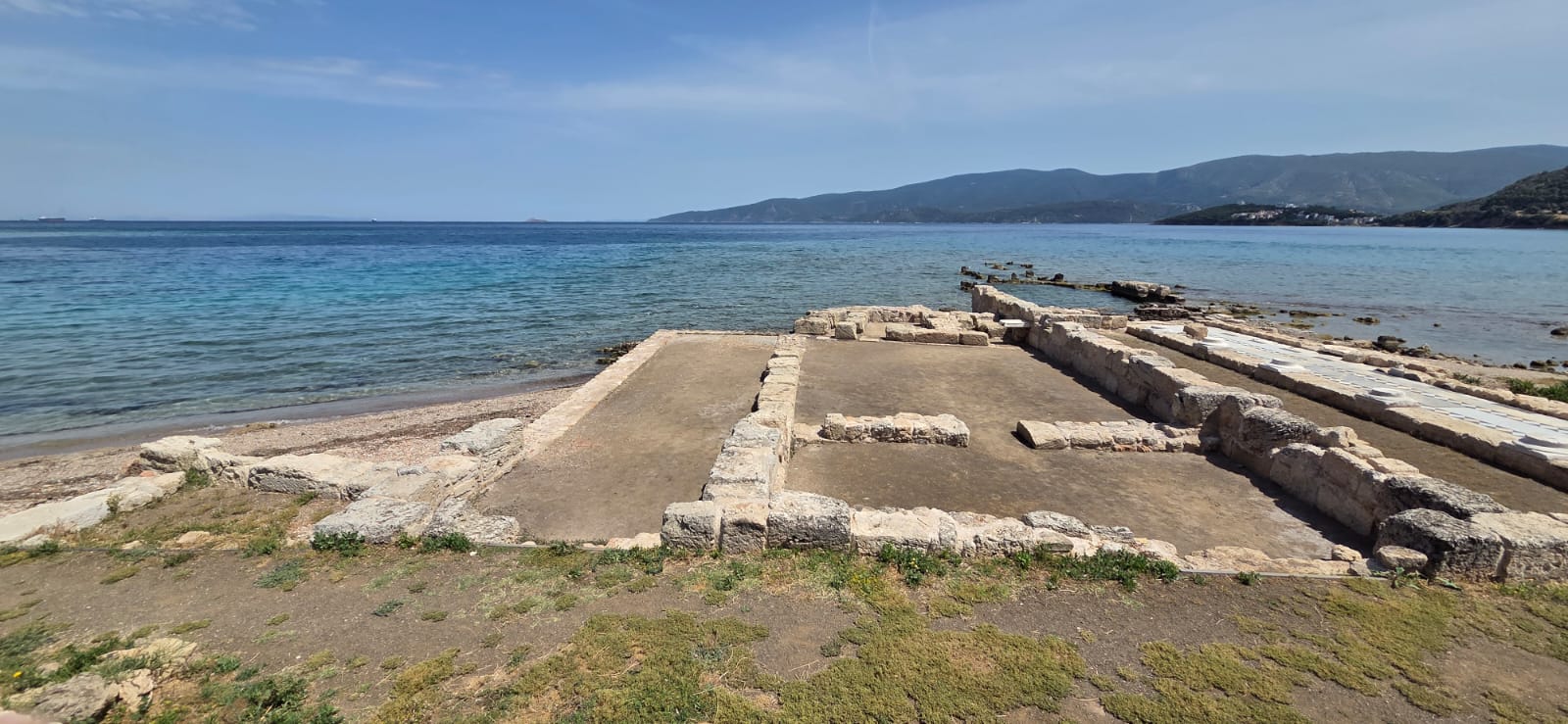
Today’s pilgrimage took us west from Athens to Ancient Corinth, a city of striking historical and spiritual resonance. Here, the Scriptures came alive—etched in stone, echoing in ruins, and woven through the very landscape where Saint Paul once walked, preached, and wrote.
After a hearty breakfast, we boarded the coach and began our journey. As the morning light brightened the sky, we entered into praise and prayer, led by Father Liam. He invited us into silence, encouraging us to lift our deepest hearts to the Lord. In that stillness, we offered our intentions, our wounds, and our gratitude, knowing that grace often works best in the quiet.
Father Liam then offered a profound teaching on Paul’s mission in Corinth. In Paul’s time, Corinth was a wealthy, cosmopolitan city filled with intellectual rivalry and moral confusion. It was also home to a young and fractious Christian community. Paul, who had founded the church there, soon received word—likely from Chloe—that divisions were tearing the community apart.
Paul’s response, Father Liam explained, was a pastoral plea for unity. He asked the Corinthians: “Are you focusing on personalities rather than on Christ?” The factions—some claiming Apollos, others Cephas, others Paul—had become a symptom of deeper problems: jealousy, suspicion, and spiritual pride.
These dynamics, Father Liam reminded us, aren’t limited to ancient Corinth. We see them in ourselves, in our families, and in our communities today. When rivalry replaces relationship, when trust is eroded by fear, the very body of Christ suffers. Paul’s call is simple but searching: “Consider your call.” God chose the weak, the lowly, the foolish—not by accident, but as a sign that transformation happens through humility and surrender.
He then reflected on sanctification—Paul’s invitation to inner equilibrium. It is not about spiritual perfection but about being aligned with Christ, who is “our righteousness.” When we are sanctified, our wounds don’t vanish—they become places where Christ can shine. To end the talk, Father Liam read 1 Corinthians 13, Paul’s hymn to love. As he read, we were reminded of the icons in the monasteries we had visited earlier in the week—rows of human faces, each bearing witness to the struggle to love well. “We often love with only 10 or 20 per cent of our capacity,” he said. “But God calls us to love with 99 per cent.” Love, he reminded us, is not just a virtue—it is the very nature of God. “Love never ends.” And so we were invited to open the guarded places of our hearts—especially those shaped by childhood wounds or old divisions—and allow God’s healing love to enter.
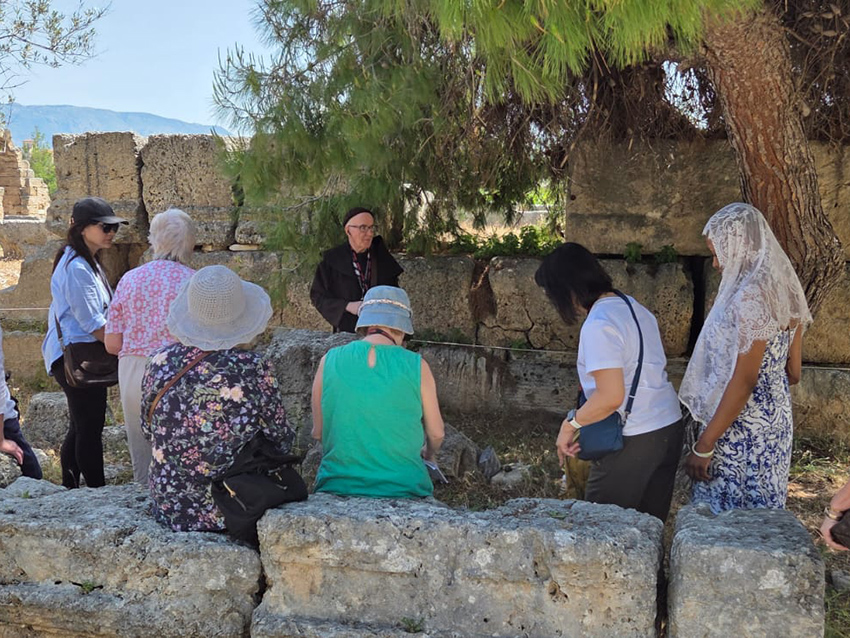
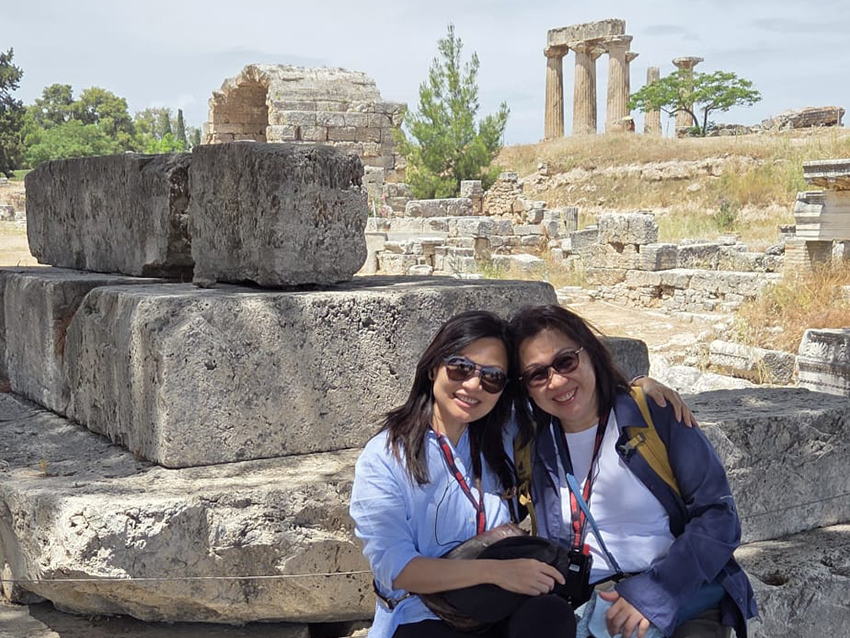
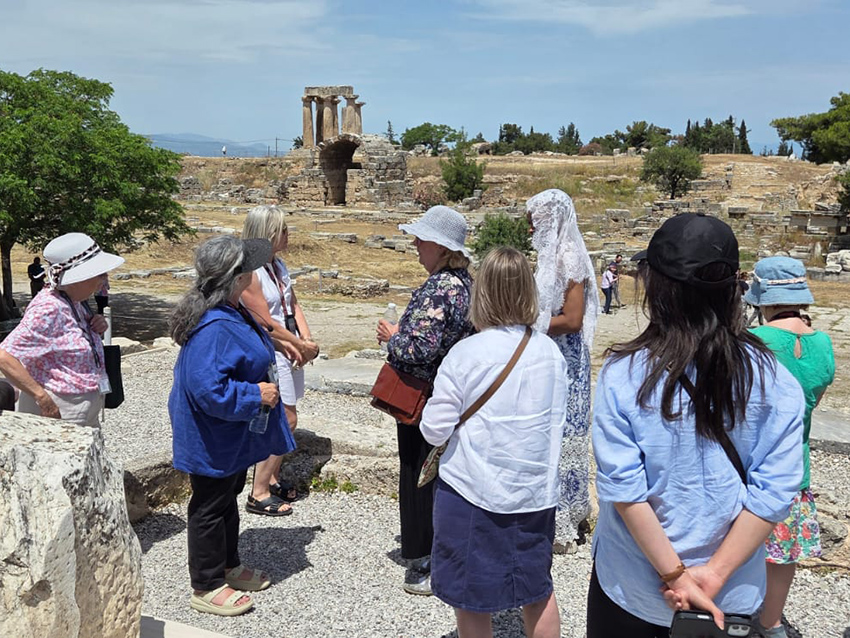
Our first stop of the day was the dramatic Corinth Canal, a marvel of modern engineering carved through solid rock to connect the Aegean and Ionian Seas. The image was striking: just as water now flows through a once-impassable barrier, so can grace cut through even the most hardened places in our lives.
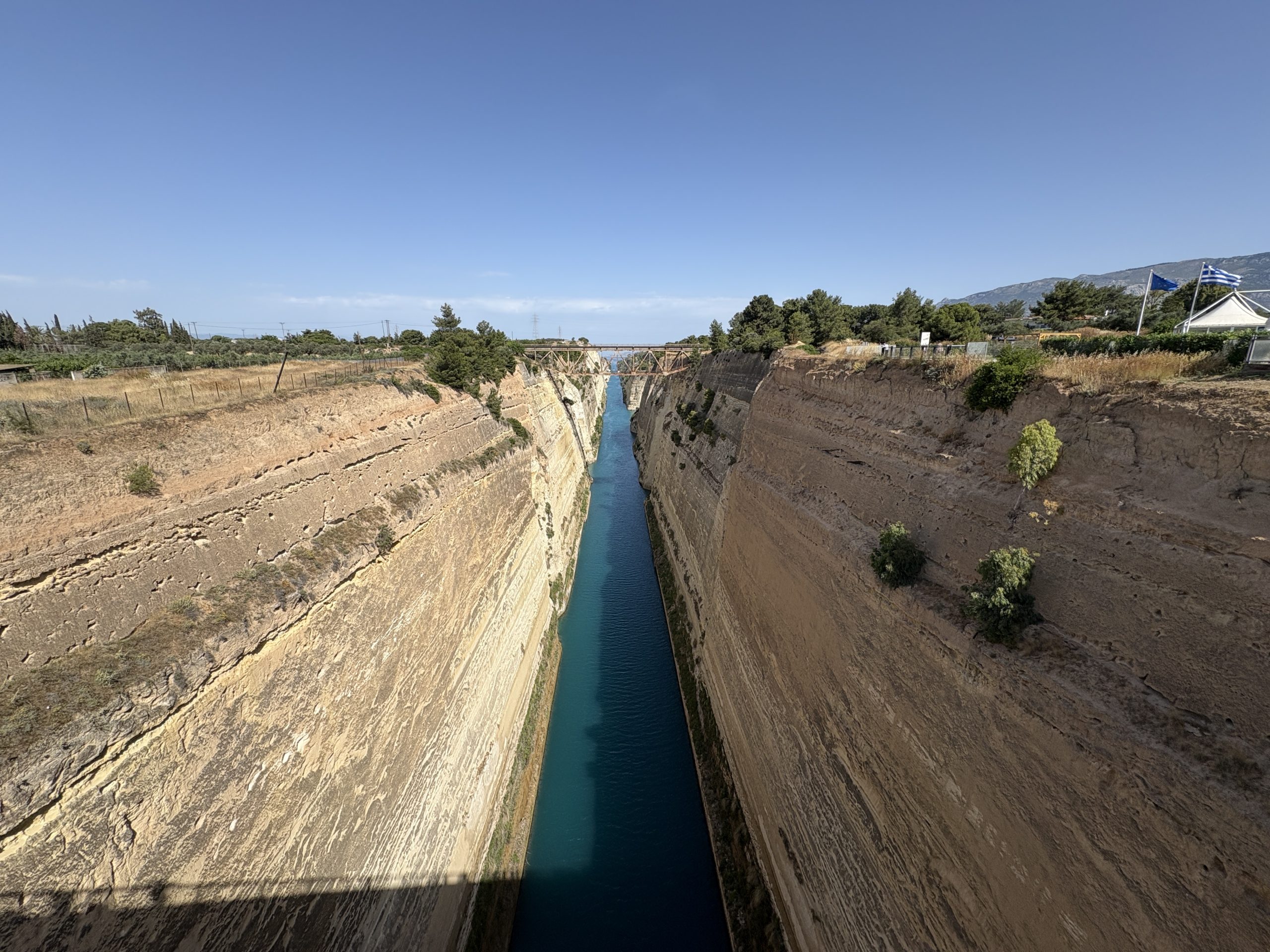
Arriving at Ancient Corinth, we were immersed in Paul’s world. We stood before the Temple of Apollo, with its towering columns, and walked through the Agora, where Paul likely reasoned with philosophers, merchants, and the curious. Here, amidst broken stones, Paul had planted seeds of faith that continue to bear fruit today.
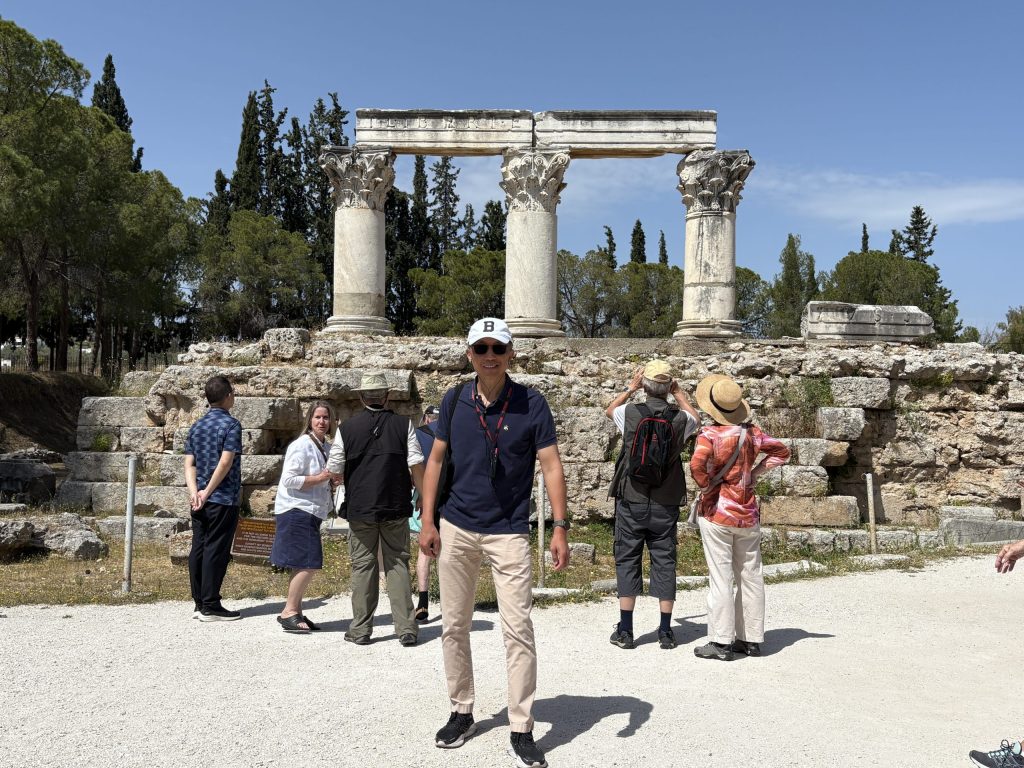
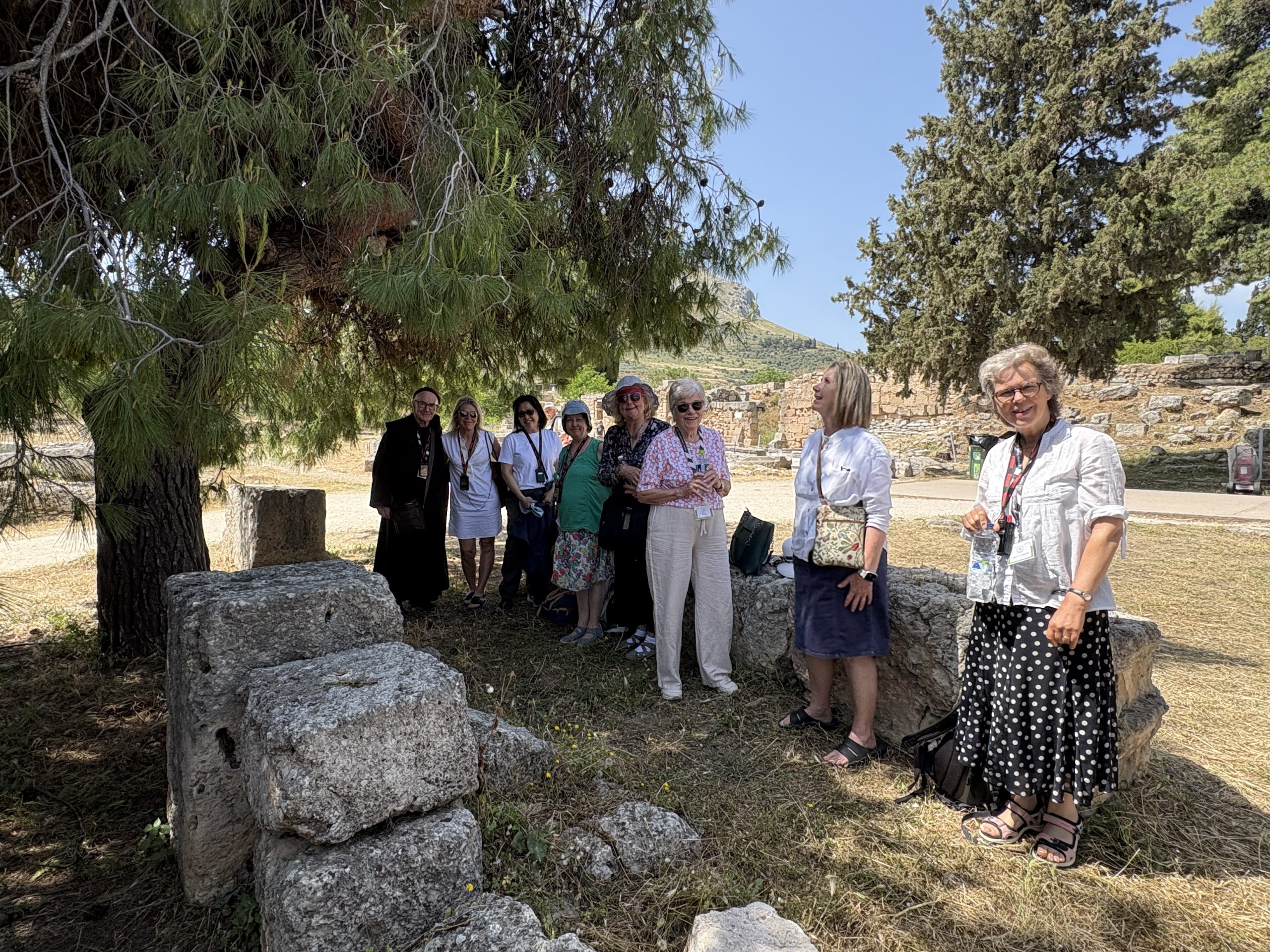
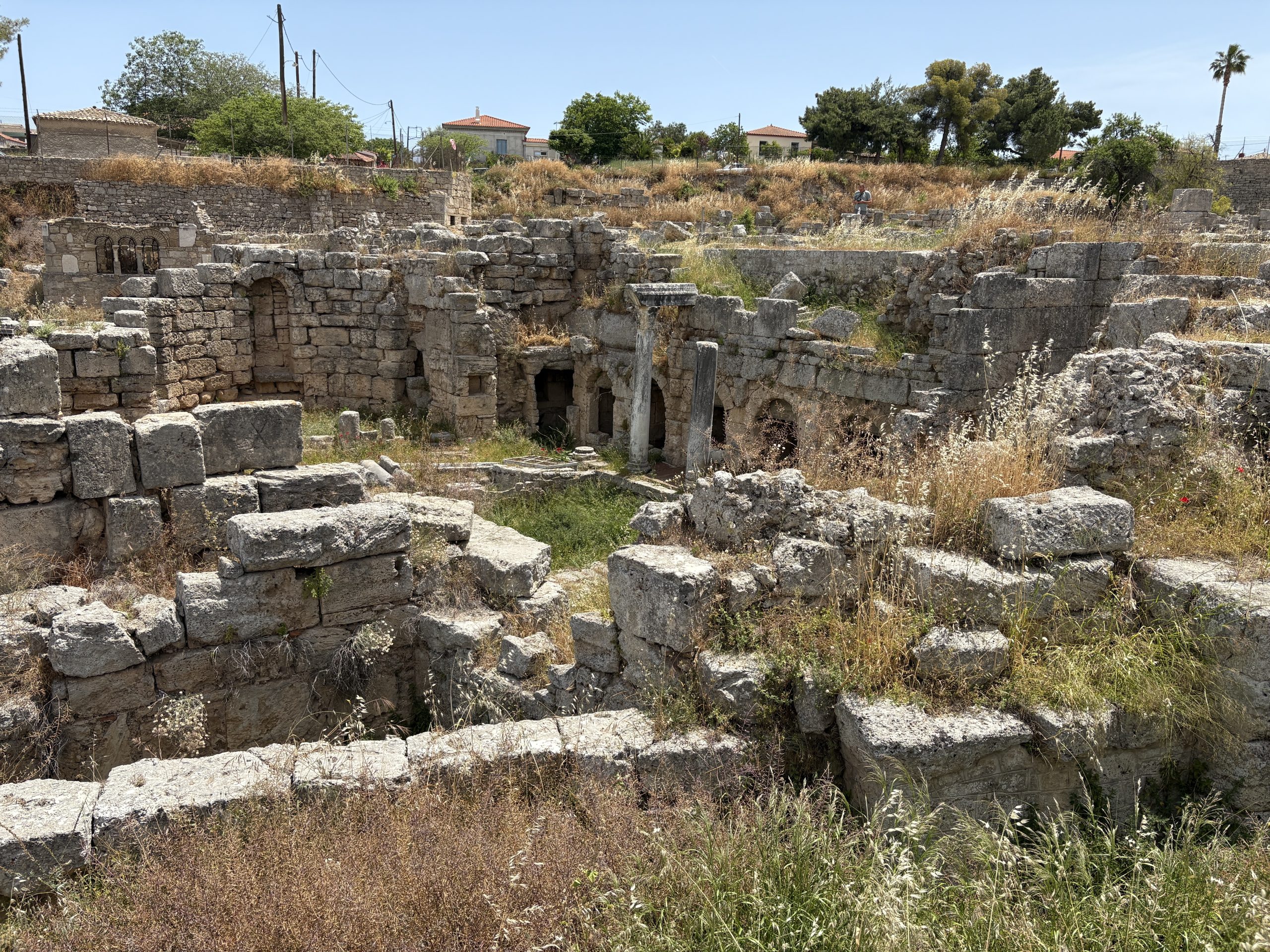
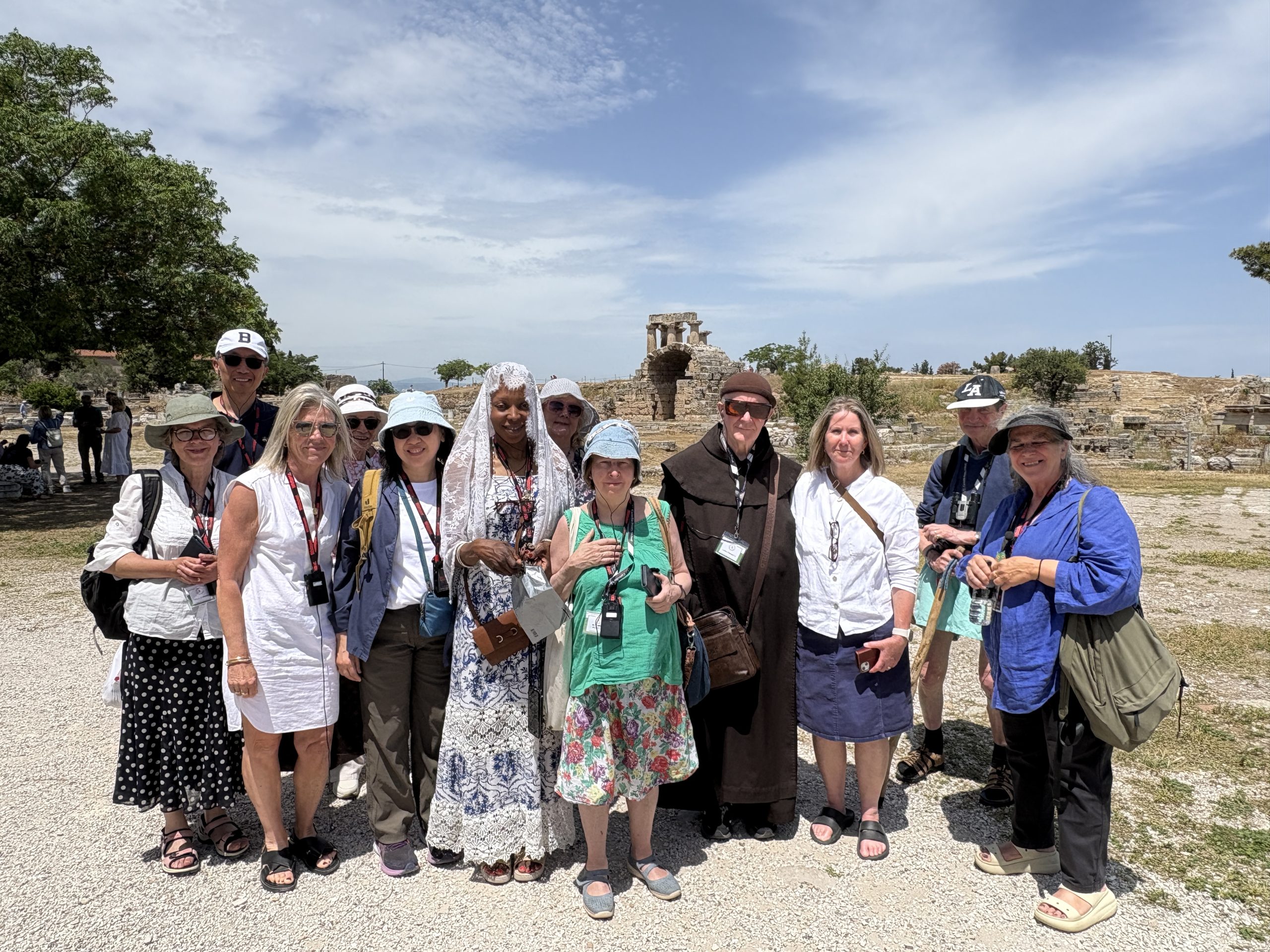
The most profound moment of the day came as we celebrated Mass among the ruins. There, surrounded by fragments of empire and faded idols, we gathered in the name of the Risen Christ—just as Paul’s community once did. The Gospel was proclaimed not only in words but in place and presence. It was a reminder that while kingdoms fall, the body of Christ endures.
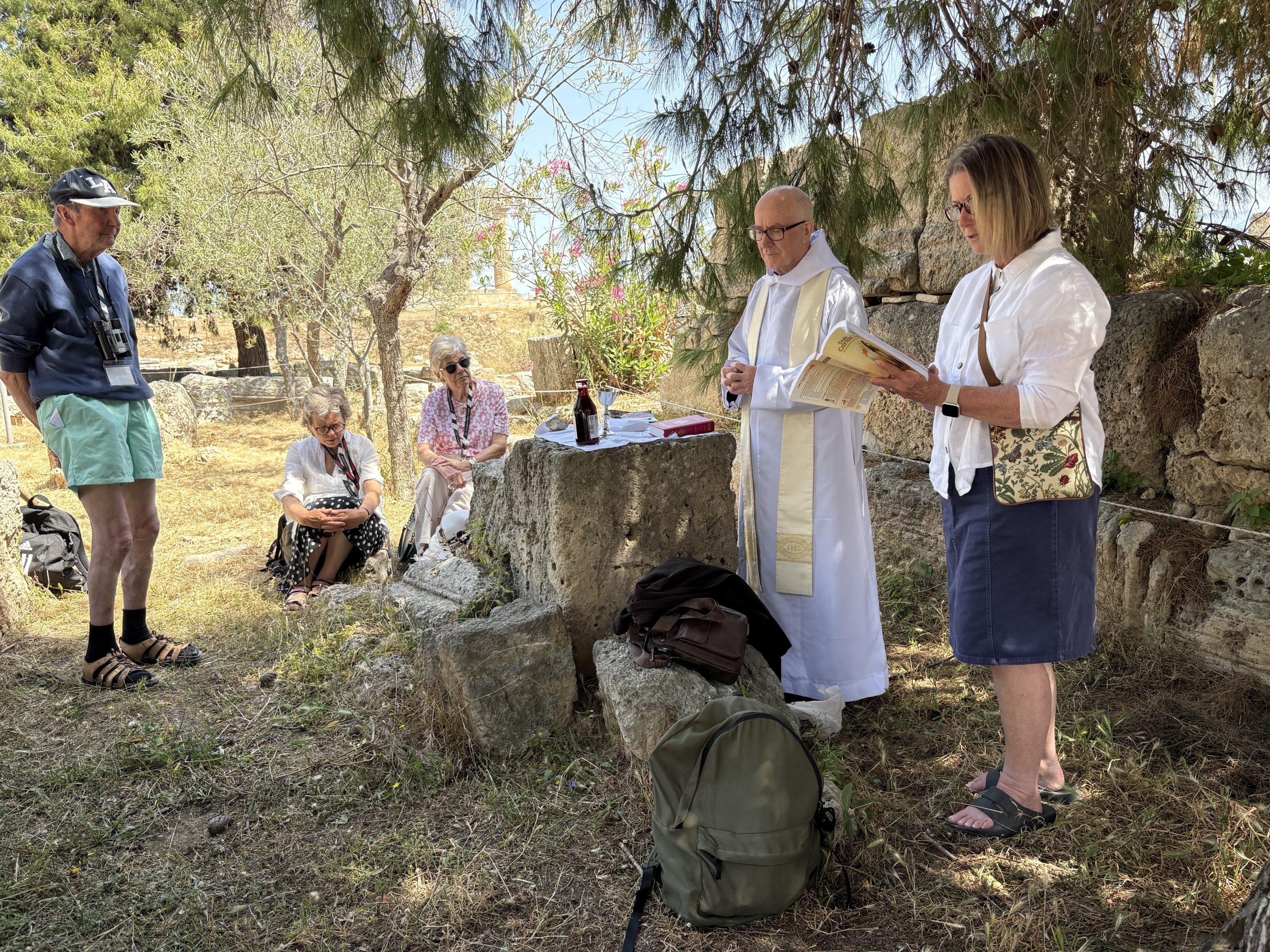
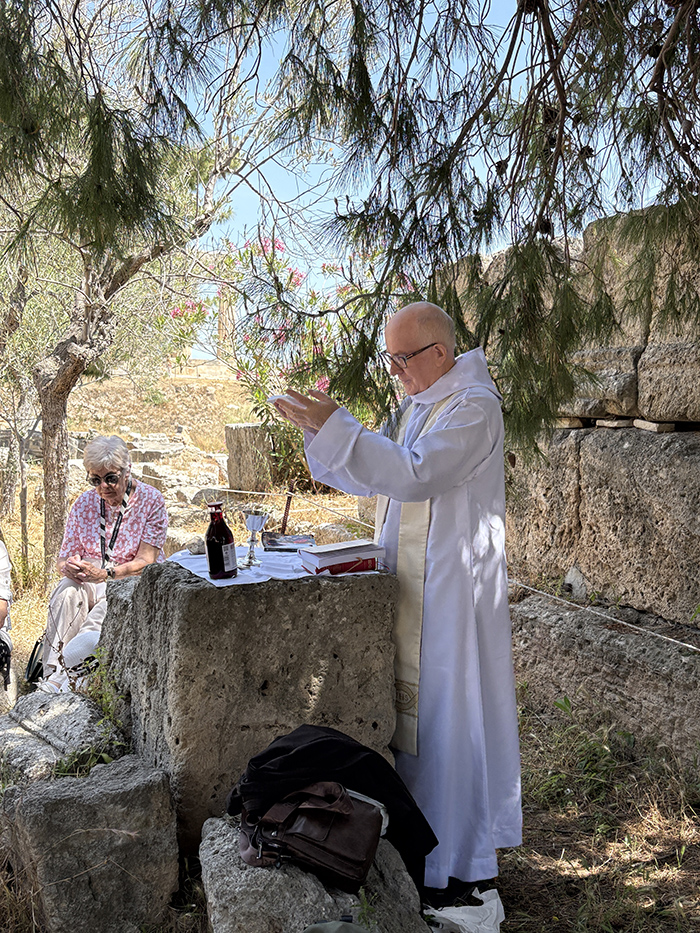
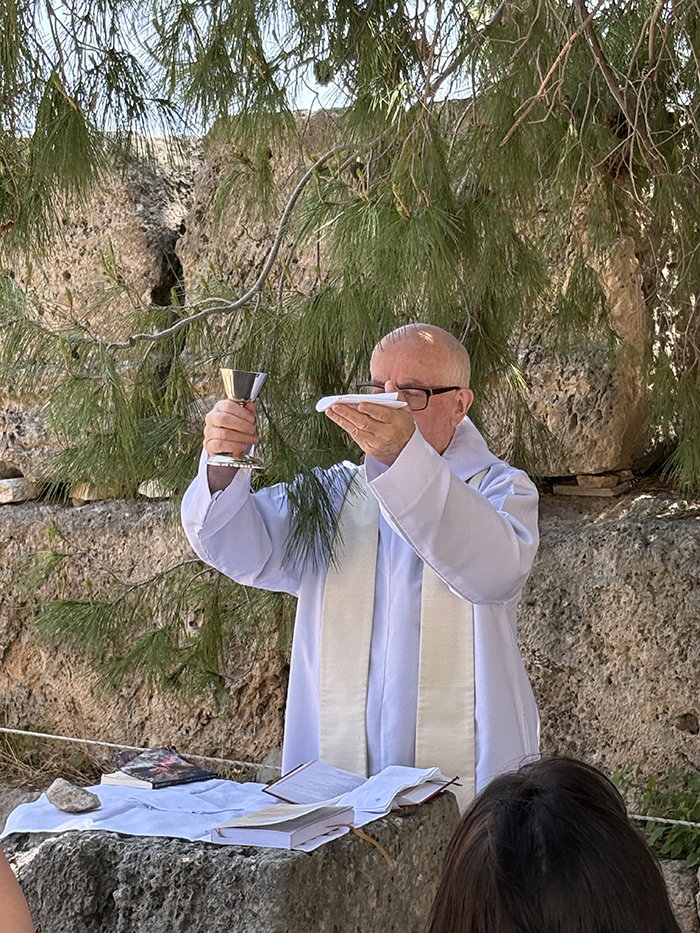
After Mass, we enjoyed lunch in a nearby village, sharing reflections and laughter over local dishes. Our conversations were lighter, but the sense of depth remained—Corinth had touched something interior.
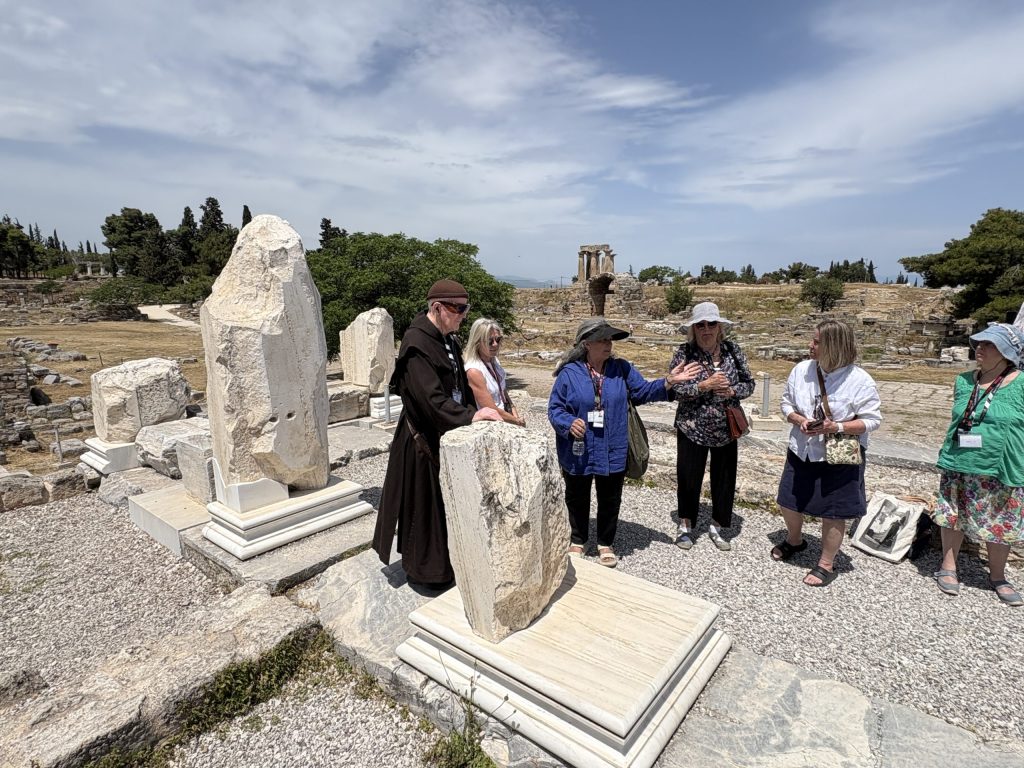
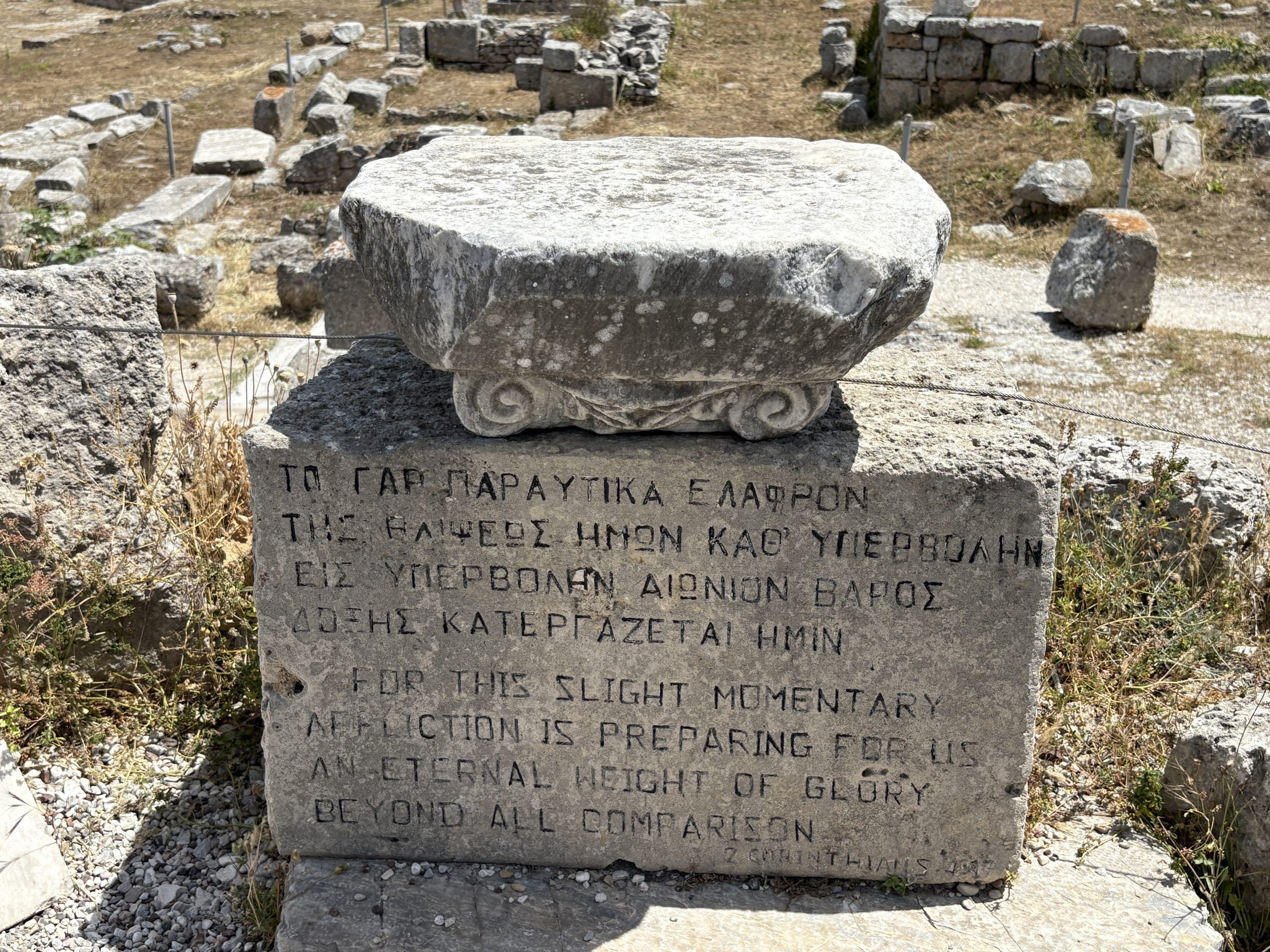
In the afternoon, we continued to Kechries (Cenchreae), the ancient port from which Paul departed Greece. Standing at the water’s edge, we could imagine him boarding a ship, heart full of hope and trust, leaving behind this young community and entrusting it to God. The waves lapped gently at the shore as we offered a few quiet prayers, each of us considering our own mission—the people we’re called to love, the places we’re called to leave or remain.
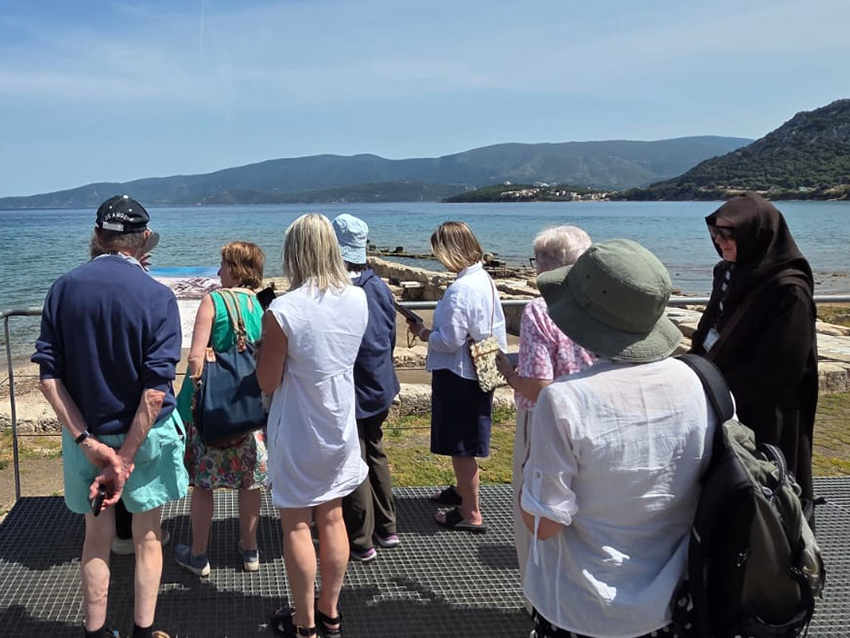
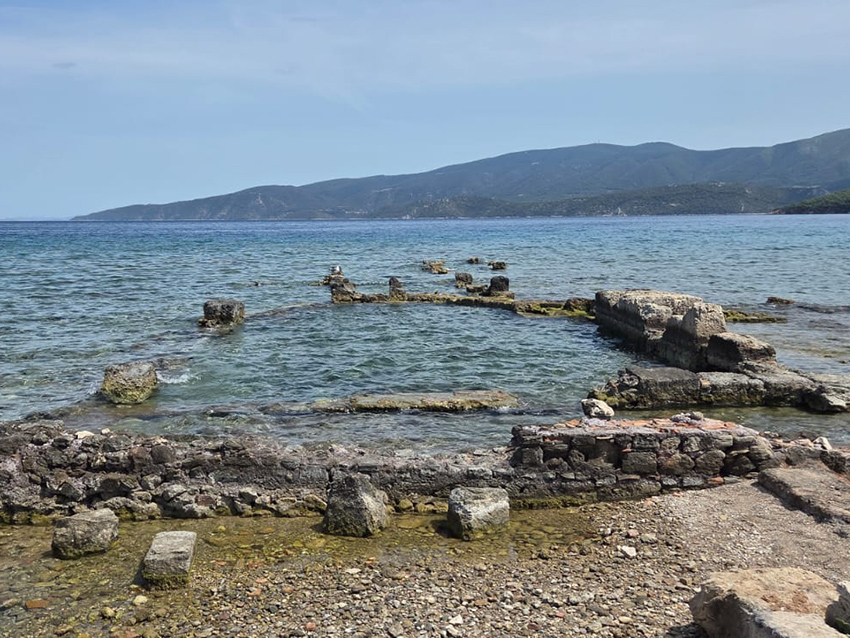
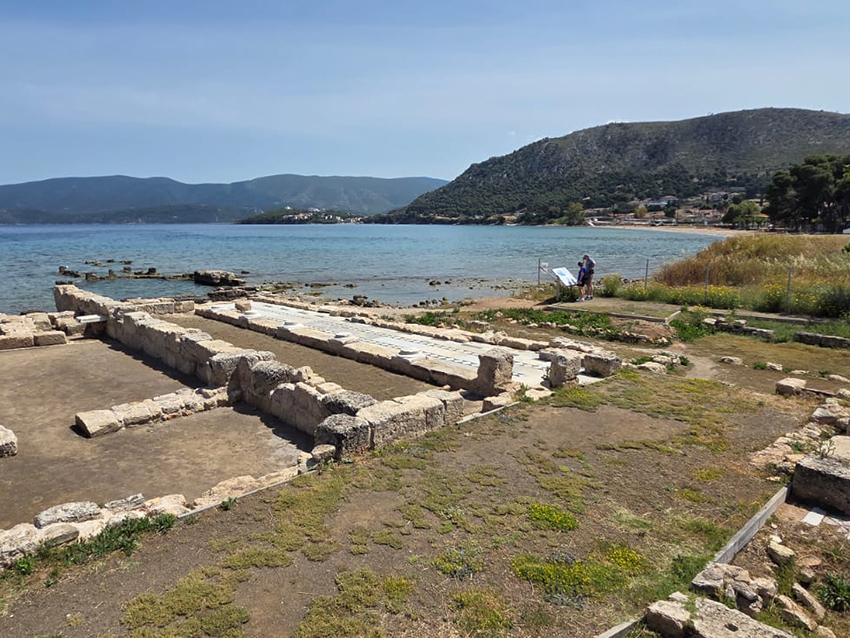
As we returned to Athens, the bus grew quieter. The day had been full: in place, in prayer, in thought. Corinth was no longer just a name from Scripture; it had become part of our journey—our call to unity, humility, and generous love.
May we continue, like Paul, to carry the Gospel not just in word, but in how we live—wounded, yes, but whole in Christ.
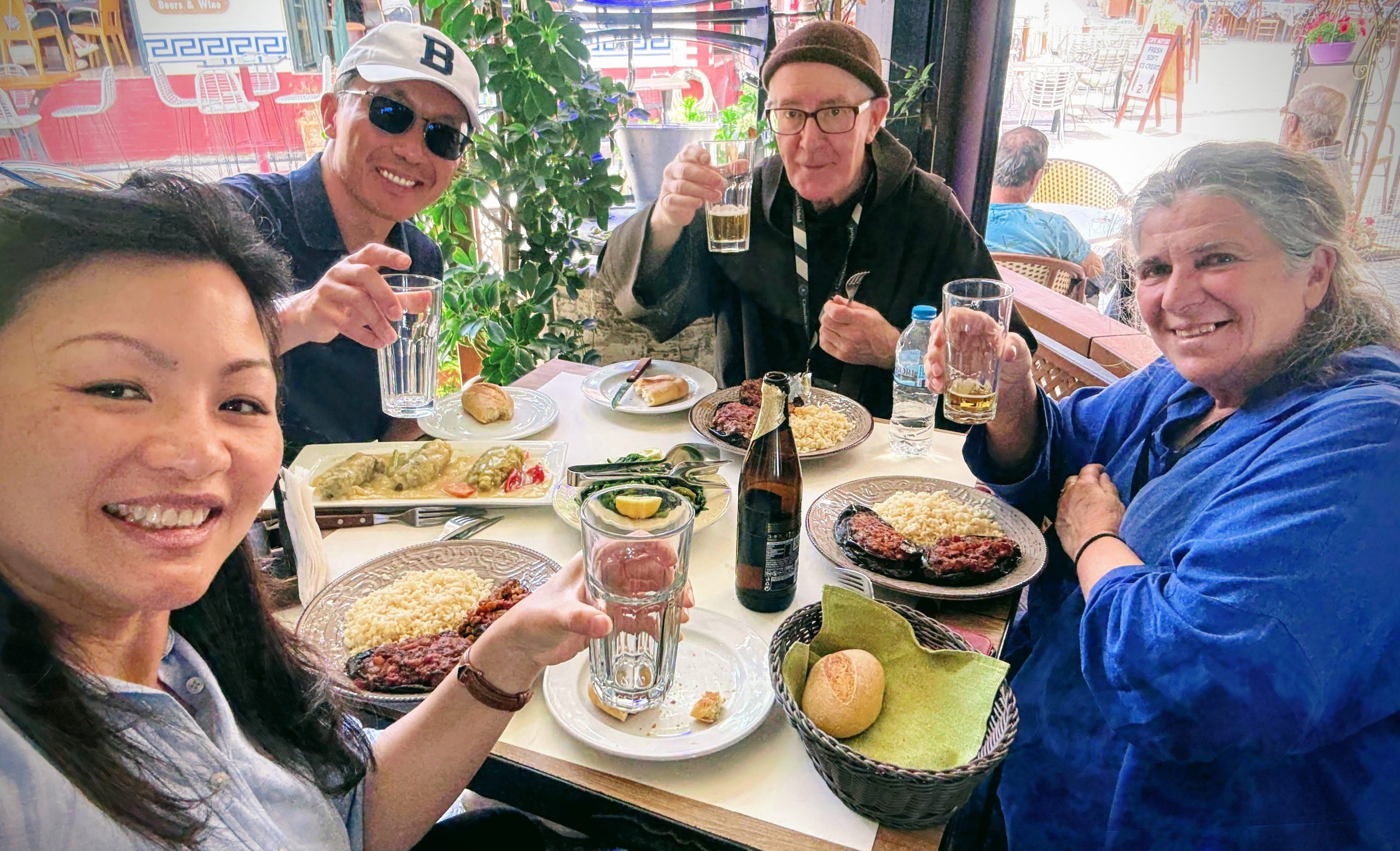
DAY EIGHT
Sending Forth in the Spirit of Saint Paul
Our final morning in Greece began quietly and reflectively. After a good night’s sleep in the very comfortable rooms of the President Hotel, we each gathered our things, packed our bags, and made our way down for breakfast.
Soon after, we boarded the coach for the last time, suitcases stowed and spirits full. Our destination: St. Joseph’s Chapel, the small, peaceful sanctuary in the heart of Athens that had bookended our time in the city.
We began with morning praise and prayer, just as we had done on so many days of this pilgrimage. But today, there was a special stillness—a weight of meaning in every word, every note, every breath. At one point, we sat together in silence, lifting the depths of our hearts to the Lord: gratitude, unanswered prayers, new hopes, and the quiet work of grace that had unfolded during our time in Greece.
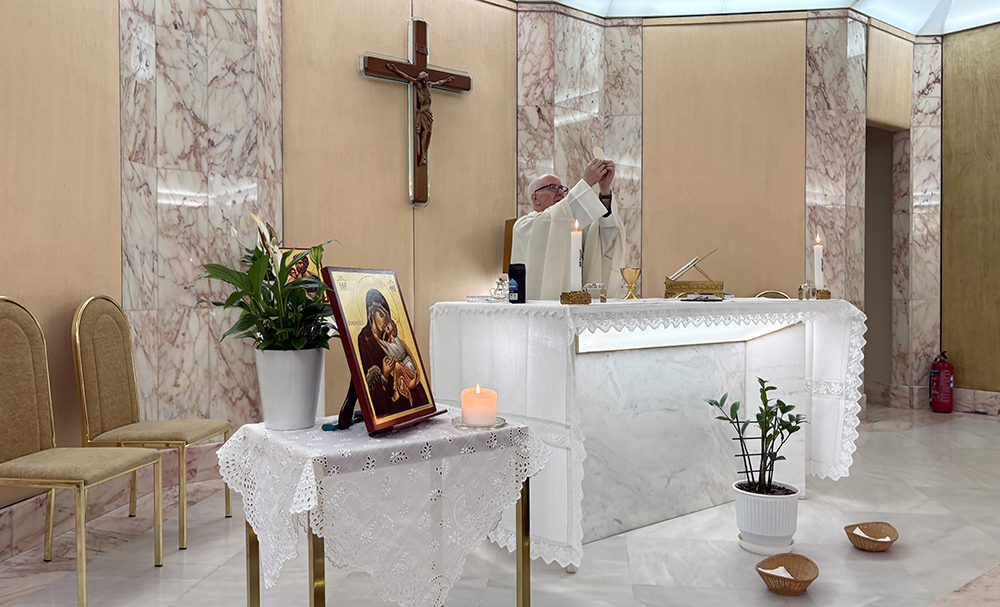
Then came our final Mass, celebrated by Father Liam. His homily was gentle and rich, a kind of spiritual exhale that brought together the many threads of our journey. He spoke of how we had followed in the footsteps of Saint Paul, not only across geography, but in spirit—in trials, teachings, and community. He reminded us of Paul’s words about the new covenant, where circumcision of the flesh is no longer needed—rather, it is the inward abiding in Christ that matters. Like branches clinging to the vine, we are called to stay rooted in Him, drawing life from His presence and bearing fruit in love.
This Mass was especially poignant because it carried all that had unfolded during the week: the sacred beauty of Lydia’s stream, the sweeping cliffs of Meteora, the Agora where we read Scripture aloud, and the sacred silences in between. But this journey hadn’t been without challenges. Like Paul’s own travels, we too encountered trials—illness, exhaustion, and physical hardship. And yet, we pressed on, not alone but together, held up by prayer, kindness, and quiet acts of service. These difficulties became part of our offering—part of the pilgrimage itself.
After Mass, we gathered outside for group photos. There was laughter, yes—but also the unmistakable bond of those who have shared something deeply human and deeply holy. Though our paths might diverge in miles, there was a sense that we were now woven together by grace.
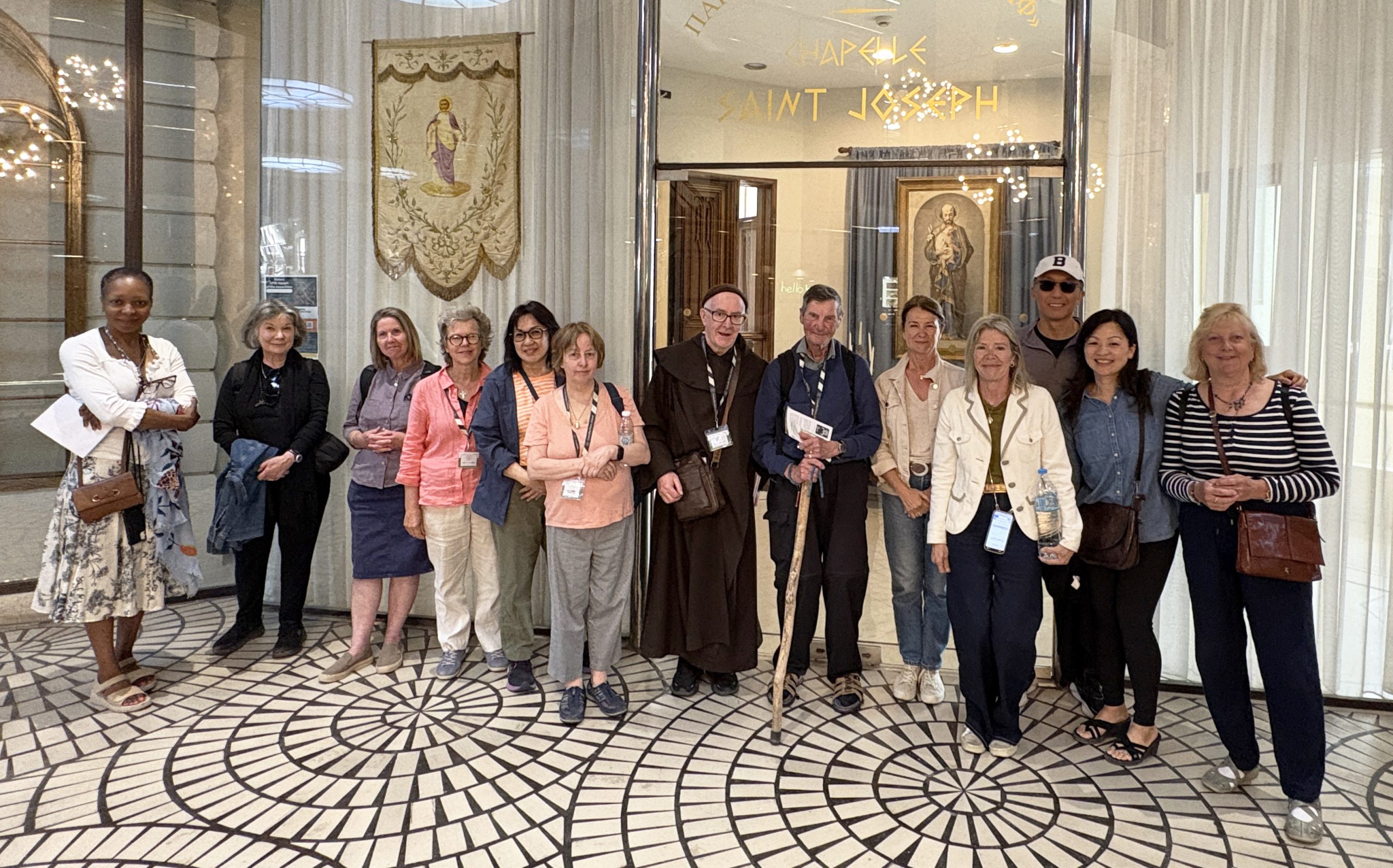
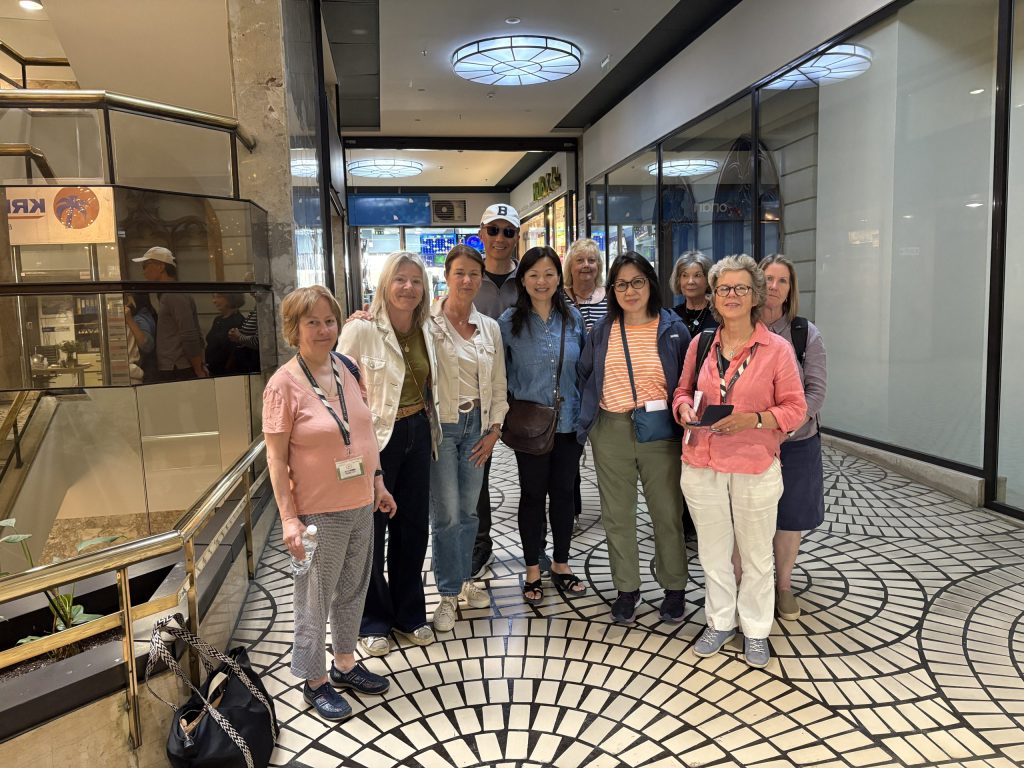
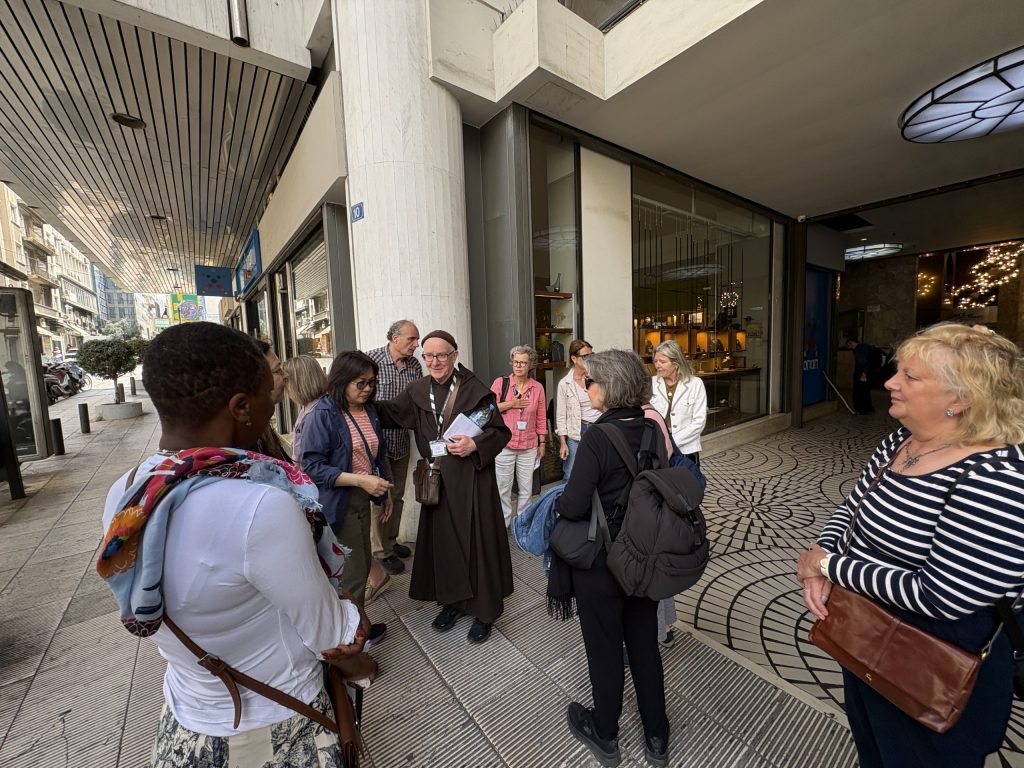
From St. Joseph’s, we boarded the coach to the airport, passing the familiar streets of Athens now tinged with memory. It wasn’t just scenery—it was story. The Acropolis, the hills, the blue sky overhead—all had become part of the landscape of our hearts.
As we made our way toward departure, we carried far more than souvenirs. We carried friendship, insight, and a renewed sense of Christ walking with us—not only in Greece, but wherever we go next.
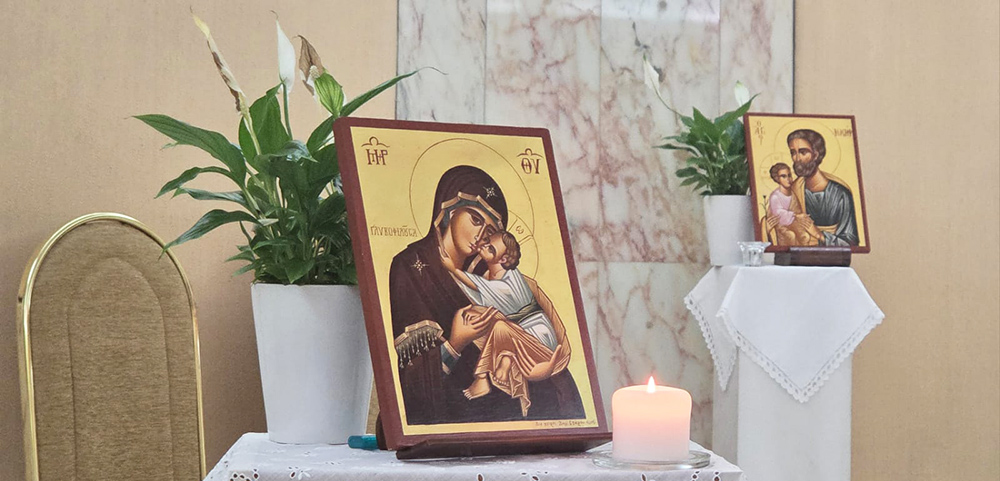
Are you thinking about making a pilgrimage?
The Carmelite Friars of Boars Hill, Oxford have unrivalled experience of taking pilgrims on the spiritual journey of a lifetime. You can travel with them across Spain to visit the sites associated with the lives and spirituality of St John of the Cross and Teresa of Ávila, explore the France of Thérèse of Lisieux or walk through Greece in the footsteps of St Paul. All pilgrimages are carefully curated and you’ll be travelling in the company of the Carmelite friars and well known speakers and experts on the locations being visited.
Find out more about our upcoming pilgrimages for 2025 and 2026 …

